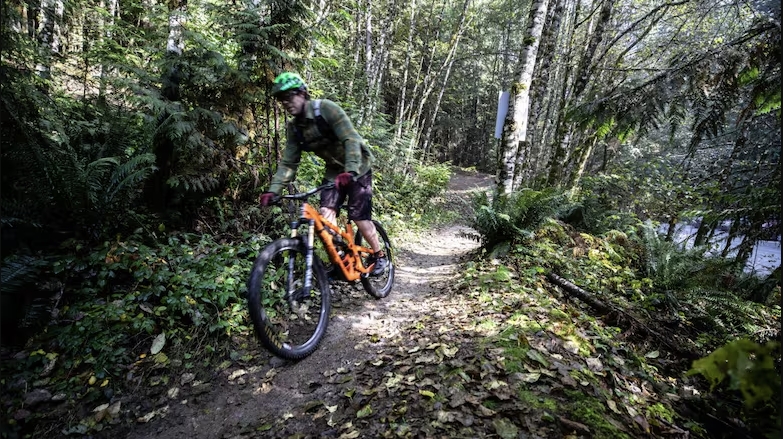Metro Vancouver Closes Rogue North Shore Bike Trails Over Safety and Environmental Concerns
Lucas Tremblay
1/23/20252 min read


Metro Vancouver has announced the closure of several unauthorized bike trails in the Lower Seymour Conservation Reserve (LSCR), saying they pose significant risks to both riders and the environment.
The decision has sparked controversy, with the North Shore Mountain Bike Association (NSMBA) condemning retaliatory actions from some trail users, including the dangerous scattering of debris with nails on an official trail called Corkscrew.
"These dangerous actions put trail users at risk and placed an unfair burden on volunteers who had no role in this conflict," NSMBA said in a statement, urging riders to respect the closures.
Environmental Concerns
NSMBA Executive Director Deanna Cote explained that rogue trail building often results in severe environmental consequences, including erosion that can harm streams, fish habitats, and tree roots.
"Those trails will eventually erode out as people are riding or hiking on them," Cote said, noting that sediment runoff from these trails poses risks to local ecosystems.
The bike association added that time and resources spent decommissioning rogue trails detract from efforts to build new, sustainable routes.
Why Trails Are Being Closed
According to Heidi Walsh, Metro Vancouver's director of watersheds and environment, the LSCR contains approximately 20 kilometres each of sanctioned and unsanctioned bike trails. Walsh said rogue trail building has surged in the past five years, creating safety hazards.
"Unsanctioned trails can include unsafe built structures, especially for riders of lower skill levels," Walsh said.
To address gaps in the trail network, Walsh encouraged riders to propose ideas through the NSMBA rather than creating unauthorized paths.
Next Steps for Trail Users
The NSMBA said trails being decommissioned will have clear signage at the trailhead, and heavy debris will block access to prevent riders from reopening them.
"We ask that the community not remove signage or debris to reopen trails as it poses a serious hazard to anyone unaware of the changes made to the trail further ahead," the association stated.
Moving forward, Metro Vancouver and the NSMBA are emphasizing collaboration with the biking community to develop trails that meet riders' needs while protecting the environment.
Walsh added, "If there is a certain type of trail that is lacking in our system, we would like those ideas brought forward through the appropriate channels instead of people taking it upon themselves to build new trails."
As Metro Vancouver works to balance recreation with environmental stewardship, officials and advocates are urging patience and cooperation from the biking community to ensure a safe and sustainable trail system for everyone.
News
Stay updated with the latest BC news stories, subscribe to our newsletter today.
SUBSCRIBE
© 2025 Innovatory Labs Inc.. All rights reserved.
LINKS
